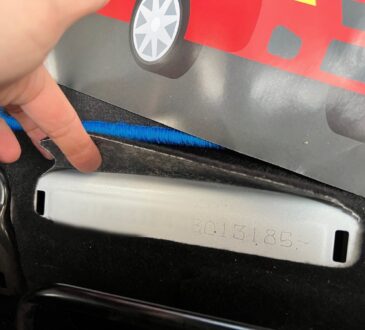
Facing an investigation by the IDFPR (Illinois Department of Financial and Professional Regulation) can be a daunting experience. It’s like navigating uncharted legal waters, and without the right guidance, it’s easy to feel lost. But fear not, because, in this blog, we’ve got your back.
We’ll walk you through some invaluable legal tips and insights to help you steer through the investigative process with confidence. From understanding your rights to strategic communication, we’ve got the inside scoop on what to do when the IDFPR comes knocking.
So, fasten your seatbelt and get ready to empower yourself with the knowledge you need to navigate the complexities of an IDFPR investigation. Your peace of mind starts here.
How Does an IDFPR Investigation Typically Start?
There are several ways an IDFPR investigation can begin:
- A complaint filed with IDFPR’s Complaint Intake Unit by a patient, employer, colleague, or member of the public regarding a licensed professional.
- A referral from a state or federal agency like the DEA about an ongoing investigation into a licensee.
- Irregularities discovered during a license application or renewal review.
Once IDFPR receives a complaint or referral, an investigator will be assigned to your case. They will open a file under your name and license number and gather information about the allegations.
What Should You Do If Contacted By an IDFPR Investigator?
An IDFPR investigator may contact you by phone, email, or in person at your home or place of work. The investigator will likely request documents, records, or other information pertaining to the investigation.
It is important to cooperate with IDFPR investigators to an extent, but remember – the investigator is not your friend. Before providing any information, contact a defense attorney experienced in handling IDFPR cases. A professional license defense attorney can help you strike the right balance between cooperation and protecting your rights.
Are You Required to Speak With the Investigator?
You are not obligated to speak with the IDFPR investigator. However, refusing to cooperate altogether can sometimes strain the investigation process. With an attorney present, you can speak with the investigator while still protecting yourself.
Some professionals wrongly assume IDFPR investigators are impartial. But investigators pass their findings to IDFPR’s Enforcement Division, who decides on disciplinary action. Having legal counsel is critical – it does not harm IDFPR’s perception of you.
Must You Provide the Requested Documents?
Investigators may request patient records, financial documents, or other information. You can refuse requests without a subpoena. If the investigator provides a subpoena, you must comply or legally contest it.
For medical records, the investigator must furnish a patient release form or subpoena. An attorney can help provide relevant records that mitigate potential discipline.
What Happens After the Investigation?
Once the investigation concludes, your case gets assigned to an IDFPR prosecutor. They will contact you to communicate whether it will proceed formally or informally. It’s important that IDFPR has your current contact information, or you risk a default order.
The notice may be for an Informal Disciplinary Conference or Preliminary Hearing. An Informal Conference provides a chance to address allegations informally before a formal complaint. A Preliminary Hearing means formal charges are filed.
What is an Informal Disciplinary Conference?
An Informal Conference is a meeting with an IDFPR prosecutor and board member. You can respond to allegations in hopes of convincing IDFPR to dismiss or reduce the charges. It is not a formal hearing – there is no testimony or court reporter.
You may have counsel present. We strongly advise retaining an attorney for these conferences to assist in your defense.
If you receive an Informal Conference notice, attend the meeting. You can potentially resolve the matter without a formal complaint. Provide relevant information to the prosecutor and board member, and answer questions to try to close the case.
If it remains unresolved, the prosecutor may offer a disciplinary settlement like a fine, probation, reprimand, or suspension. Settlements become Consent Orders signed by all parties. Public disciplines are published online.
How Should You Prepare for the Conference?
Prepare just as you would for a formal hearing. Prosecutors sometimes pressure unfair settlements in Informal Conferences. Beforehand, give your attorney:
- All documentation received from IDFPR
- Information already provided to IDFPR
- Relevant records in your possession
Avoid:
- Attempting to handle the conference alone
- Believing you’ll be treated fairly without representation
- Delaying retaining counsel until discipline is forthcoming
- Treating investigators like confidantes
- Inadequately preparing for the conference
What Should You Do During an IDFPR Investigation?
Being investigated is extremely stressful for licensed professionals. However, taking smart, cautious steps can help protect your rights and career. Here are some key legal tips:
- Don’t rush to resolve the case. Patience often benefits the accused. While aware of time limits, regulatory actions typically have no fixed timeline. It’s often easier to negotiate “older” cases.
- Investigators are not on your side. Professionals sometimes inadvertently harm their defense by answering questions incorrectly without counsel. Don’t assume investigators are your friends.
- Ask questions before providing information. Know the allegations and how the requested information relates before supplying it. Ensure you understand the purpose and scope of the investigation.
- Determine which agency is investigating. Different agencies have different jurisdictions. Finding out who’s investigating provides insight into the nature of the case.
- You can end an interview at any time. If you are uncomfortable or feel intimidated, stop the interview and contact an attorney. You have that right.
- Do not lie to investigators. It is a crime to make false statements. You don’t have to lie – end the interview if needed. Only provide information on the advice of counsel.
- Be judicious in providing written statements. Supplying written statements can lock you into a position. Have your attorney review any formal statements first.
- Most cases are resolved via Informal Conferences. Settlements often depend on the prosecution’s evaluation of provable facts. Providing less initial information to investigators may be beneficial.
- Experienced legal representation is critical. A skilled IDFPR defense attorney can help protect your rights and license at every stage of the investigation. Don’t go it alone.
Contact a Chicago IDFPR Defense Attorney
Facing an IDFPR investigation can jeopardize your professional career and reputation if not handled correctly. If you are facing an IDFPR investigation, the experienced Illinois IDFPR defense attorneys at 1818 Legal can help. They represent licensed professionals in IDFPR matters throughout Illinois.
Contact their team today to schedule a consultation and learn more about how we can protect your livelihood.





